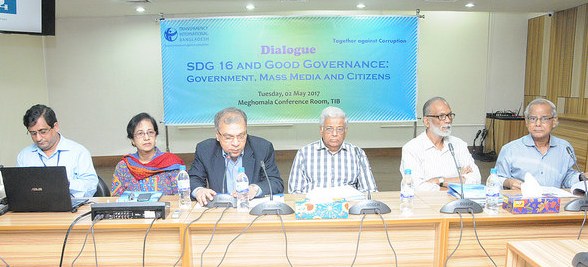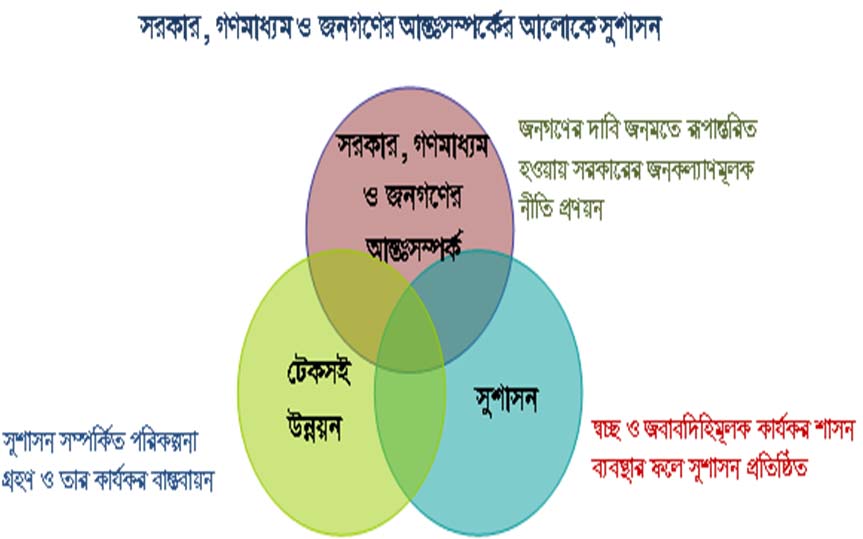Published: 02 May 2017
During a dialogue on ‘SDG 16 and Good Governance: Government, Mass Media and Citizens’, organized by Transparency International Bangladesh (TIB) on 2nd May, speakers called for improving communication with the citizen by the government and ensuring supportive regulatory environment so that media can effectively contribute in achieving transparency and accountability targets as outlined in the SDG 16.
Chaired by Member of TIB’s Board of Trustees and former chief election commissioner ATM Shamsul Huda, the dialogue was arranged on the occasion of International Press Freedom Day declared by UNESCO. BRAC University’s Professor Afsan Chowdhury and media analyst Mohammad Jahangir were the key discussants. TIB’s director (outreach and communication) Rezwan-ul-Alam presented the keynote paper. TIB’s Deputy Executive Director Dr. Sumaiya Khair, journalists from different media outlets and media analysts also attended.
TIB’s Executive Director Dr. Iftekharuzzaman observed that the government has to provide a congenial environment so that mass media can work independently. Terming that the freedom of the mass media is important for the progression of democracy, Dr Iftekharuzzaman said: “The pressure on the Bangladesh’s mass media is growing, pushing the media towards self-censorship. This is not acceptable in the democratic process.”
It was observed in the dialogue paper that various research findings across the world have shown direct and indirect correlation among the media reporting and good governance. Media’s critical analyses also impact on governance-related policy formulation and media’s watchdog role can enhance the government’s transparency and accountability and improve relations with the citizens.
If the government refuses to heed public opinion and limits the freedom of speech, there will be a crisis between the government and the people”, it was argued in the paper. The paper also argued that tripartite partnership among the government, mass media and citizens can contribute to good governance as outlined in SDG 16, which promotes peaceful and inclusive societies for sustainable development, provide access to justice for all and build effective, accountable and inclusive institutions at all levels.
Speakers decried that journalists are divided under the political banners and their division is increasing day by day and the journalists’ leaders are taking opportunity of this. They also observed that the democratic process and good governance would be impeded if the mass media fails to work independently.
To implement the governance related target of SDG 16, the paper proposed few measures, which included, among others: development of a strategic communication strategy by the government, enhancing the capacity of the Ministry of Information to provide timely and accurate information to media, refraining from imposing harsher regulatory measures such as banning Youtube or Facebook by the authorities and ensure free and balance flow of information for the media. Media was also urged to intensify the number and the quality of investigative reporting, facilitating dialogue among citizens and authorities, maintain ethical standard of journalism and improving media’s internal governance mechanisms to earn respect and confidence of the media consumers.









